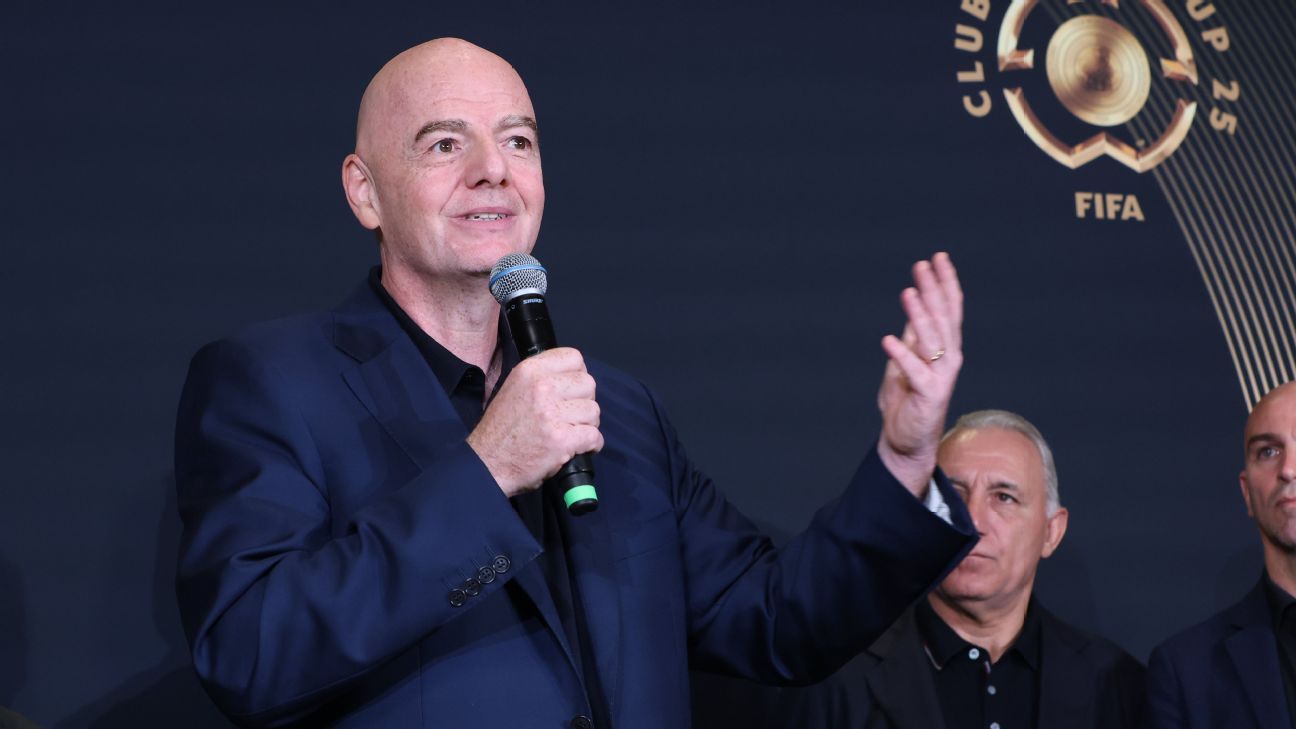The Football Players Union has successfully advocated for a mandatory break following discussions in New York involving FIFA President Gianni Infantino and prominent members of global players’ unions.
Concerns around player exhaustion prompted the players’ call for enhanced welfare, especially after FIFA’s recent decision to organize the inaugural 32-Team Club World Cup during the European offseason.
Following a speech on Saturday, FIFA and the players’ union reached an agreement on implementing a minimum 72-hour gap between matches, along with a mandatory three-week rest period at the end of the season, as confirmed by the governing body of football.
FIFA has stated that it will also consider player union proposals to participate in discussions during the FIFA Council meetings on player-related matters.
In a formal release, FIFA noted: “This conference tackled crucial issues regarding the health of players, both male and female, making it a top concern as part of the labor risk prevention framework set by the International Labour Organization (ILO).”
“FIFA and the Player Union have evaluated upcoming collaborative projects with global football management bodies and player representatives, prioritizing balance within the International Match Calendar (IMC) while emphasizing player recovery and rest.”
“A consensus was established that players should have a minimum of 72 hours between games and must enjoy at least 21 days of rest at the end of each season.”
“This rest period should be managed by clubs and players according to the match calendar, taking applicable collective agreements into account.”
“Clubs must also plan their weekly rest days effectively.”
“It was additionally discussed that players should consider long-distance intercontinental travel and climate conditions during future IMC policy formulation.”
In June 2024, FIFPRO, the Global Football Players Union, along with the English and French unions, initiated legal action against FIFA, claiming it breached European competition rules by expanding its fixture schedule with the new FIFA World Cup format and creating the Club World Cup.
On the eve of the US Club World Cup, FIFPRO requested a mandatory four-week break at season’s end.
Given that the FIFA Club World Cup was introduced without adequate consultation with the players, FIFA and the union affirmed the necessity to balance both club and international calendars.
“FIFA and the Players Union recognize the importance of maintaining equilibrium between national and club football alongside domestic, continental, and global competitions,” stated FIFA.
“Providing opportunities for players worldwide to engage in premier competitions is vital for fostering global soccer development.”
“Moreover, facilitating more playing opportunities for those not competing at the highest international level has also been highlighted as a significant priority.”
Fan Take: This development is crucial for soccer fans as it highlights the governing bodies’ recognition of player well-being, which can lead to higher quality matches and more consistent performances. A proper balance in scheduling not only benefits players but also enhances the overall experience for fans following their favorite teams and leagues.



